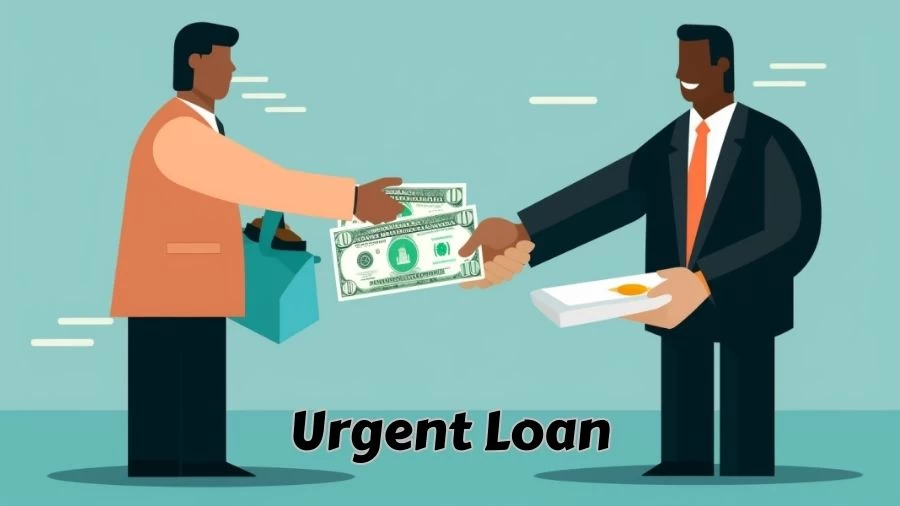
What is an Urgent Loan? How to Get An Emergency Loan?
An urgent loan is a swiftly approved and accessible personal financing option, unsecured and designed for immediate financial needs, offering a safer alternative with reasonable rates to address unforeseen crises.
Updated Jan 06, 2024
On This Page
What is an Urgent Loan?
An urgent loan is a form of personal loan designed to address unforeseen financial needs, such as immediate medical expenses or critical home repairs. These loans are typically approved and disbursed within a short period, often within a day or two.
Unlike payday or car title loans, urgent loans are generally unsecured, relying on factors like credit, income, and existing debts to determine approval and interest rates. This makes them a safer and more affordable option, with lenders capping annual percentage rates at 36% or lower, emphasizing the borrower's ability to repay.
How to Get an Emergency Loan?
Navigating the process of obtaining an emergency loan becomes seamless with these five comprehensive steps. From comparing lenders and evaluating reputations to the prequalification process, application submission, and awaiting the decision and funding, this guide ensures a well-informed and efficient approach to addressing urgent financial needs.
Compare Lenders: Start by researching various lenders, considering factors like interest rates, repayment timelines, disbursement speed, and credit score requirements. This assessment helps you choose a loan that aligns with your specific needs.
Evaluate Lender Reputation
Dig into the reputation of potential lenders by exploring customer reviews and ratings on platforms like the Better Business Bureau. This scrutiny provides insights into the trustworthiness of the lender, helping you make an informed decision.
Prequalification Process
Initiate the prequalification process to gauge your potential eligibility without affecting your credit score. This step is crucial in avoiding unnecessary credit pulls that could temporarily lower your credit rating.
Submission of Application
Complete the loan application online if possible, providing personal information, income details, and required documents like identification and paystubs. Online applications often result in quick decisions.
Decision and Funding Awaitance
After submitting your application, await the approval decision and funding. The timeline varies by lender, but many disburse funds quickly via direct deposit or other methods. This ensures you can access the funds promptly to address your financial needs.
What Factors Should Be Considered When Selecting an Emergency Loan?
The interest rate is a pivotal factor when selecting an emergency loan, as it directly impacts the overall cost of borrowing. It's prudent to compare interest rates from various lenders and opt for the one offering the lowest rate. A lower interest rate translates to reduced expenses over the life of the loan, making it a financially sound choice.
Fees
Examining the fee structure associated with an emergency loan is crucial for avoiding unexpected costs. Lenders may impose fees for loan processing, prepayment, or late payment. Thoroughly reading the terms and conditions enables a clear understanding of these fees, allowing borrowers to factor them into their decision-making process.
Loan Amount
The loan amount provided by a lender plays a pivotal role in addressing specific financial needs. Choosing a lender that offers a loan amount aligned with your requirements ensures that you secure adequate funds to address the emergency without borrowing more than necessary.
Repayment Terms
Flexible repayment terms are essential to accommodate diverse financial situations. Considering the length of time provided for repayment allows borrowers to select a lender whose terms align with their budgetary constraints, making it easier to manage and repay the loan responsibly.
Credit Score
Understanding the credit score requirements of a lender is vital, as it directly influences loan approval and interest rates. Selecting a lender that caters to individuals with your credit score ensures a smoother application process and favorable borrowing terms.
Approval Time
In emergency situations, swift approval and funding times are paramount. Opting for a lender with a reputation for fast processing ensures that you receive the necessary funds promptly, allowing you to address the urgent financial situation effectively.
Collateral
Some lenders may require collateral to secure the loan. Assessing whether a lender offers unsecured loans, especially if you lack collateral, is essential. This ensures that you can access funds without risking valuable assets.
Customer Service
The quality of customer service is a significant consideration when dealing with financial matters. Choosing a lender known for excellent customer service and support ensures a smoother borrowing experience and effective communication throughout the loan process.
What are the Alternatives for Emergency Loans?
In the quest for financial solutions amid unexpected challenges, exploring alternatives to emergency loans becomes crucial. This guide outlines diverse options, from personal loans and credit card cash advances to leveraging home equity and tapping into employer resources.
By delving into each alternative's features and considerations, it aims to empower individuals with a comprehensive understanding of choices beyond conventional emergency loans. When exploring alternatives to emergency loans, consider the following options:
Personal Loans
Personal loans are versatile and unsecured, offering a lower-interest alternative to credit cards and payday loans. Their extended repayment periods provide flexibility for managing financial emergencies over time.
Credit Card Cash Advances
While more costly than personal loans, credit card cash advances provide a quick solution by allowing you to borrow against your credit limit. This option is beneficial when urgent funds are needed.
Home Equity Loans
Home equity loans leverage the equity in your home, offering lower interest rates compared to personal loans and credit cards. However, they entail using your home as collateral, necessitating careful consideration.
401(k) Loans
Borrowing from a 401(k) retirement account often comes with lower interest rates, but poses risks if repayment becomes challenging. This option is viable for those with a 401(k) seeking a lower-cost borrowing alternative.
Paycheck Advance
Some employers offer paycheck advances to employees, providing a swift solution without the need for a formal loan. This can be an attractive option for those in need of immediate funds before the next payday.
Charity or Nonprofit Organizations
Numerous nonprofit organizations extend financial assistance in the form of grants or low-interest loans to individuals facing emergencies. Exploring these charitable avenues can offer valuable support during challenging times.
Urgent Loan - FAQs
1. What is an urgent loan?
An urgent loan is a type of personal loan designed to address immediate financial needs, such as unexpected medical bills or vehicle repairs.
2. How do lenders determine eligibility for urgent loans?
Lenders evaluate factors like credit history, income, and existing debts to determine eligibility and the applicable interest rate.
3. What's the typical range of interest rates for urgent loans?
Interest rates for urgent loans usually vary between 6% and 36%, depending on the lender and the borrower's financial profile.
4. Can I get an emergency loan with bad credit?
Yes, there are lenders who offer emergency loans to individuals with bad credit, often focusing on repayment ability rather than credit scores.
5. What's the range of loan amounts for urgent loans?
Urgent loan amounts typically range from $1,000 to $100,000, allowing borrowers to address a variety of financial needs.




